Of course, I don’t think she meant it.
Kamala Harris is about to turn 60, is the incumbent vice president of the United States, has served as a senator and as attorney general of California, and has done a few other things in her life. To the extent that she has political ideas (and it is not entirely clear to me that she does have political ideas in any meaningful sense), she must have settled into them some time ago. But even if you do the prudent thing and assume it all can be written off as marketing, what are we to make of this Romney-Ryan 2012 by way of Harris-Walz 2024 apex of the Democrats’ convention?
What is it all about?
Not Joe Biden. The incumbent president of the United States—who was first elected to the Senate the year I was born and was, up until about three minutes ago, the notional leader of the Democratic Party—has followed every shifting wind in his political coalition until he became an ancient mariner, adrift, without any wind in his sails at all. That guy—recently hailed by progressive favorite Pete Buttigieg as “among the best and most consequential presidents in American history”—got precisely 50 words from Harris, nearly 10 percent of which were first-person pronouns. This very much had the feeling of rhetorical handiwork executed by someone under strict orders that Biden must get at least 50 words in the big speech—and the speechwriters landed on that nice, round number precisely. I don’t want to read too deeply into that particular mess of buzzard entrails, but, as deafening silences go, I like the style.
Harris’ big speech—and the Democratic National Convention generally—lifted a fair bit from Republicans circa 2012. The words “opportunity” and “opportunities” appeared seven times; “freedom” got a dozen mentions; even “liberty” received a shout-out. There were promises of tax cuts and deprecations of Donald Trump’s plan to impose an enormous new tax on Americans that he calls “tariffs.” The address even ended with some Reaganesque jingo-optimism:
It is now our turn to do what generations before us have done, guided by optimism and faith, to fight for this country we love, to fight for the ideals we cherish and to uphold the awesome responsibility that comes with the greatest privilege on Earth: the privilege and pride of being an American. So let’s get out there, let’s fight for it. Let’s get out there, let’s vote for it, and together, let us write the next great chapter in the most extraordinary story ever told.
Thank you. God bless you, and may God bless the United States of America. Thank you.
So, now that Republicans have decided they want to be the new farmer-labor party for the poor and ignorant, Democrats are going to be the party that … talks a lot about “freedom” and “opportunity” and runs on tax cuts?
Color me skeptical.
But first, a few concessions. As my friend David French points out, there is at least one important policy priority with regard to which Kamala Harris clearly offers conservatives an approach preferable to that of Donald Trump: U.S. policy vis-à-vis U.S. interests in Ukraine, whose people are valiantly fighting off an invasion undertaken by a tyrant whose junta is entirely hostile to U.S. interests and who is in bed with every important U.S. enemy and adversary from Tehran to Beijing. Donald Trump is essentially pro-Moscow in his stance; Deputy Troll J.D. Vance is as close to explicitly pro-Moscow in his stance as it is permissible to be and still hope to have a political future after the crash and burn that his ticket seems to be headed toward. (Seems, as of this writing. I don’t do predictions.)
There are a few other areas in which Harris is clearly the preferable candidate from a conservative point of view. Trump’s “instinct” to put the Federal Reserve under his personal control (a position he half-articulated and then abandoned, as is his habit)—on the justification that “I made a lot of money, I was very successful, and I think I have a better instinct than, in many cases, people that would be on the Federal Reserve, or the chairman”—is precisely the sort of thing that your thinking-type person does not want to hear from the serial bankrupt gameshow host and quondam pornographer who is so bad with money that he somehow lost his ass owning casinos. Harris’ affirmation of support for the Fed’s independence, even if pro forma, is by far the better position. And while they still generally prefer butter to guns and remain at least partly captive to the union goons who wield such disproportionate power in their party, the Democrats today are marginally more friendly to trade than are the Republicans, much better-disposed toward critical organizations such as NATO, and much more inclined toward engagement in multinational institutions with our most important allies, including the European Union. If we must talk about “vibes,” Harris still is giving more Olaf Scholz than Angela Merkel, more Olof Palme than Carl Bildt, more Ed Miliband than Tony Blair, etc., but the apparent rhetorical shift in her team and her party is remarkable.
Sure, this could all just be focus-group stuff. (I’d like to think that Sen. John Fetterman has had a kind of leavening effect on his fellow partisans.) But even that says something. Left-leaning politicians who feel like they have to move toward the center, or that they at least must give the impression that they are moderating, are a different kind of political proposition than left-and-leaning-into-it types. If hypocrisy is the tribute vice pays to virtue, then the insincere rhetoric of moderation is the tribute that idealists, fanatics, and true believers pay to reality. And if Democratic hypocrisy means that the Democrats are at least paying attention to reality, that they have some understanding of what it is, then that’s to the good. If Democratic hypocrisy regarding a shift to the center means that they at least understand where the center is, then, as Jonah says, two cheers for that hypocrisy.
What I mean by “liberty” or “freedom” or “opportunity” is, naturally, not precisely what Harris and her speechwriters mean. That can be assumed. Much of Harris’ “freedom” talk in her convention speech was about “reproductive freedom,” by which she means license to dismember unborn children. But even there, I prefer to hear her put the argument in terms of freedom. If the pro-choice position is essentially a libertarian one (personal autonomy) and the pro-life position is also an essentially libertarian one (the right not to be chopped up at any age), then what we have is a dispute about matters of fact. From my point of view, the problem with “my body, my choice” isn’t the principle articulated (which I accept, if something less than joyfully, in such matters as the legalization of drugs and of prostitution and in similar arguments) but that it begs the question. If I thought there were only one body in question, whatever objections I harbored would be of a different character than the ones I have with two bodies. (What do I mean? I mean that as ghastly as the elective amputations carried out to “treat” body integrity dysphoria obviously are, they are in a category of things fundamentally different from the termination of a living human organism at four months of age.) Disagreements are inevitable and not always undesirable, but if we are really to begin the discussion with freedom, then, by all means, let us begin.
Some of the speech was, of course, fair-trade vegan baloney—this is a nomination-acceptance speech from Kamala Harris we are talking about here, after all. She wildly overstated the scope of the Supreme Court’s ruling in the Trump immunity case and claimed that Trump desires to “eliminate the Department of Education that funds our public schools,” which is … not how public schools get funded. The Department of Education is mainly not a funding channel (federal funds account for about 13.6 percent of public school budgets) but a policy-making body—and a generally destructive and incompetent one at that, which has always been the case against it.
But there isn’t much to quibble with in this:
In many ways, Donald Trump is an unserious man. But the consequences—but the consequences of putting Donald Trump back in the White House are extremely serious.
Consider—consider not only the chaos and calamity when he was in office, but also the gravity of what has happened since he lost the last election. Donald Trump tried to throw away your votes. When he failed, he sent an armed mob to the U.S. Capitol, where they assaulted law enforcement officers. When politicians in his own party begged him to call off the mob and send help, he did the opposite—he fanned the flames. And now, for an entirely different set of crimes, he was found guilty of fraud by a jury of everyday Americans, and separately—and separately found liable for committing sexual abuse. And consider, consider what he intends to do if we give him power again. Consider his explicit intent to set free violent extremists who assaulted those law enforcement officers at the Capitol.
His explicit intent to jail journalists, political opponents, and anyone he sees as the enemy. His explicit intent to deploy our active-duty military against our own citizens.
Come for the indictment, stay for the … soft-pedaled corporatism?
As president, I will bring together labor and workers and small-business owners and entrepreneurs and American companies to create jobs, to grow our economy and to lower the cost of everyday needs like health care and housing and groceries. We will provide access to capital for small-business owners and entrepreneurs and founders.
These people couldn’t run their convention on schedule, but they are going to manage the capital market, the housing market, the food market, and the labor market, as though these were remote-control toy cars that could be operated from the Oval Office.
So, not great stuff.
There is a way around some of our seemingly intractable political messes, including some of the most important of them, and one can at times see a few of the less rigid progressives groping their way toward it: From (what used to be) the center-right silo, you take deregulation, economic liberalization, free trade, and fiscal sobriety, and if you feel the need to launch a job-creation program somewhere, you do it by building new military equipment there; from the center-left silo, you take a pay-as-you-go social-insurance model of welfare and preferably a decentralized one, a liberal but not anarchic model of immigration reform, and more-than-generous funding for education; and everybody grows up a little, for example by admitting that we have a violent crime problem that has relatively little to do with illegal immigrants and that isn’t going to be solved through more aggressive regulation of sporting-goods stores. The idea isn’t to transform us into a polity that prizes unity above diversity or that finds that “the time for debate is over!” on this or that issue; the idea is to transform us into a polarized and acrimonious democratic polity with a well-functioning central government. It’d still be a mosh pit, but in a venue with paid-up insurance and reasonably responsible management.
Kamala Harris has an extraordinary opportunity in front of her—and she does seem to like the word “opportunity,” talking up an “opportunity economy” like a Brookings scholar of an earlier era—that I wonder if she fully appreciates. Donald Trump could eke out a win in November, to be sure—but he also has the potential to lose, bigly. The GOP has been engaged in a slow-motion suicide—moral and intellectual at first, but also political—that has a nontrivial share of its former partisans casting about for something to hold on to in the whirlpool. Most of them are not going to become lifelong Democrats: If we think of a spectrum of alienated Republicans ranging from all-day-every-day Fox News viewers to socially conservative evangelicals such as David French to old-school Republicans and business-first Chamber of Commerce types such as Nikki Haley—or, even more illustratively, someone like Rex Tillerson, a man of the world who went to bed with the devil and then was for some reason surprised when he woke up with a burning sensation—not many of the people who fall between those poles are going to last long as de facto Democrats. They will stampede back into the Republican Party if and when the Republicans—or the Democrats—give them an excuse to do so.
But there are a lot of people who voted for Nikki Haley who could do with a decade or two of normalcy and basic administrative competence in the federal executive and who don’t much care whether that comes from people with Rs next to their names or Ds. There is a numerically small but politically important (and, not to put too fine a point on it, disproportionately rich) minority that cares a great deal about international engagement in both security and economic affairs, to the extent that those two things can be spoken of as though they were separate, that is either socially liberal or by default quietist, and that believes that both fiscal and regulatory policy, as well as ordinary public-sector administration, have to take some meaningful account of the actual facts on the ground. That group—which owns a lot of the important businesses and manages a great deal of the capital—is up for grabs, and the mere fact that No Labels failed to grab it doesn’t mean that it isn’t grabbable. Many of our most important and sophisticated exporters are farmers, and, while their neighbors may thrill to Trump’s buffoonery, they do not want more chaos in their overseas business.
In the runup to the 2008 presidential election, Barack Obama met with a group of Wall Street types (I have this account from someone who was present) and said that he was on the verge of coming out in support of a national school-choice policy because he’d had enough of the teachers’ unions and the bureaucracy that had done so much to undermine civic life in big American cities—and particularly in black and poor communities in places such as Chicago. He ended up not doing that. He wasn’t the Leninist radical his critics said he was going to be, but he was a more or less conventional progressive, albeit one who seemed to understand the contours of what was doable for him. He knew what was going to happen to his party after the Affordable Care Act fight, and he did it anyway, because that is what he wanted his legacy to be. That was a tragedy and—to borrow from Joseph Fouché—worse than that, it was a blunder.
Barack Obama could have been a genuinely transformative political figure, thanks in part to happy accident and in part to his skill. He chose, instead, high-flown oratory for special occasions and hackery for the day-to-day. Harris isn’t Barack Obama, but she could—if she took a larger view of things—do some extraordinary things, some of them wish-list items for her progressive core constituents and some of them bigger and more important than that. Obama’s problem may have been that he won too easily and then adopted the attitude best expressed by his two-word maxim: “I won.” Democrats are feeling pretty good right now, and by November they may even be feeling triumphal. But there is more to winning than getting your way. “Mandate” is a figure of speech, the “right side of history” is a delusion, and there are no permanent victories. Even if Kamala Harris could command the enthusiasm of 100 percent of Democrats, that gets her only so far.
But 97 percent of Democrats and 22 percent of Republicans is a different story. And if she wants it, that could be Harris’ story. She has made some gestures in the right direction, though she has undone some of the good she did herself in forswearing some of her earlier radical positions by embracing new dumb ones, such as price controls and gigantic, inflationary housing subsidies. Ironically, she needs to boil down some of her own verbal goo, decoct the actual value from it, and learn to be, as a politician, “unburdened by what has been.”
And Furthermore …
Me? Personally, I’m entirely comfortable in my state of semi-detached semi-nihilism. But I don’t think you can build a society on people like me. You need a few of us around to be critics and satirists and general pains in the ass. But we aren’t running the factories or bringing in the crops.
Words About Words
We need to talk about “raw dogging.”
The expression has begun to turn up in the unlikeliest of places: the travel pages.
Originally, “raw dogging”—a very visual phrase!—meant “to have sexual intercourse without the protection of a condom.” It has come to be used in a variety of other contexts, including a weird new trend among certain young men (virtually all of whom have really nice girlfriends in Canada, I am reliably informed) of taking long-haul flights and forgoing any distractions: no books, no internet, no in-flight movie, etc., just staring at the little map showing the progress of the flight. Apparently, they also try to forgo eating or drinking and the necessary functions that follow eating and drinking. It is supposed to be some kind of endurance test.
You can just about trace the evolution of the usage. “Raw dogging” refers to experiences that are unmediated. But I don’t think that actually works very well: Presumably, most raw-doggers want the sexual experience to be unmediated, whereas people stuck on that 18-hour SIN-JFK flight would prefer that the experience be mediated. Of course you don’t mix your 25-year Macallan with Coke—you have it straight. But if what’s on the menu is cat piss—or Evan Williams—then you want it at 1 part per million or so.
I suppose I get the half-assed Stoic/Ram Dass imperative to “Be Here Now,” but I am not sure how staring bored at an electronic map is like having condom-free sex.
Either I don’t know how to stare at a wall or these guys don’t know …
Economics for English Majors
Why do price controls produce shortages? Kamala Harris doesn’t know! But you should.
Price controls do lead to shortages, as both history and basic economic theory teach us, in a two-pronged way that is pretty easy to understand. Think of it this way: The market price is the real price—not what you or somebody else thinks the price should be, or what the cost of production plus a reasonable margin adds up to, or anything like that, but the place on the supply-and-demand graph where the lines intersect.
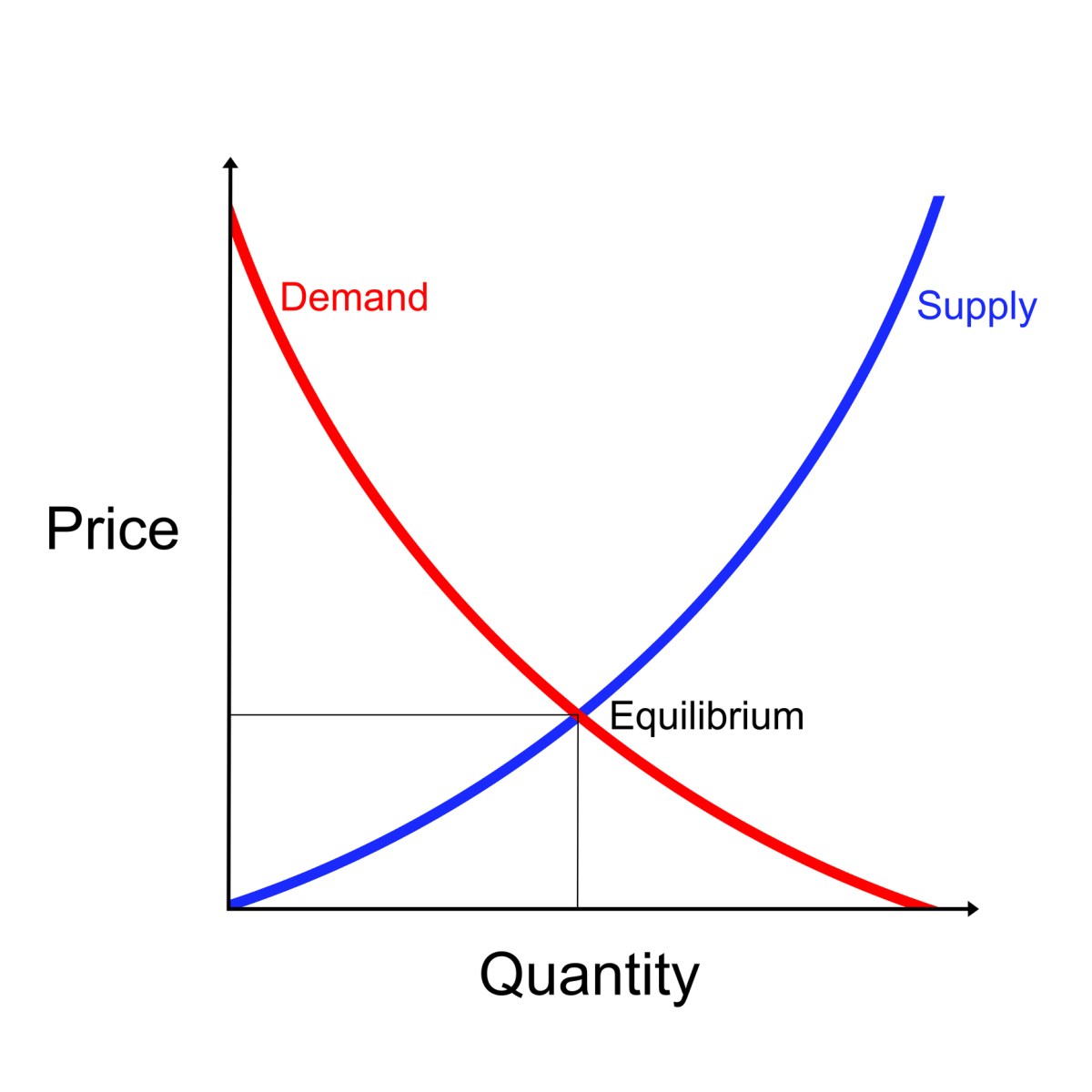
When you grab that price and artificially move it downward, two things happen:
- You decrease supply, because supply curves slope upward, meaning that producers are willing to provide more of a given good or service at higher prices.
- You increase demand, because demand curves slope downward, meaning that consumers will want to consume more of a given good or service when prices are lower.
The shortage is the gap between what producers will supply at the new lower price and what consumers demand at the new lower price. We’ve seen this play out a million times in a million places with a million products, most often essentials such as gasoline and other fuels, electricity, food, and housing.
As professor George Reisman put it:
Price controls are advocated as a method of controlling inflation. People assume that inflation means rising prices and that it exists only when and to the extent that businessmen raise their prices. It appears to follow, on this view, that inflation would not exist if price increases were simply prohibited by price controls.
Actually, this view of inflation is utterly naive. Rising prices are merely a leading symptom of inflation, not the phenomenon itself. Inflation can exist, and, indeed, accelerate, even though this particular symptom is prevented from appearing. Inflation itself is not rising prices, but an unduly large increase in the quantity of money, caused, almost invariably, by the government. In fact, a good definition of inflation would be, simply: an increase in the quantity of money caused by the government. Rising prices as a chronic social problem are a consequence of governments overthrowing the use of gold and silver as money and putting in their place unbacked paper currencies and checking deposits whose quantity can be increased without limit and virtually without cost.
The imposition of price controls to deal with inflation is as illogical as would be an attempt to deal with expanding pressure in a boiler by means of manipulating the needle in the boiler’s pressure gauge. It is no less self-destructive, as well. Prices are equivalent to an instrument panel on the basis of which everyone plans his economic activities and which enables the plans of each individual to be harmoniously adjusted to the plans of all other individuals participating in the economic system.
The free market is a truly awe-inspiring complex of relationships in which the rational self-interest of individuals unites all industries, all markets, all occupations, all production, and all consumption into a harmonious, progressing system serving the well-being of all who participate in it.
All of this is what price controls destroy.
Furthermore …
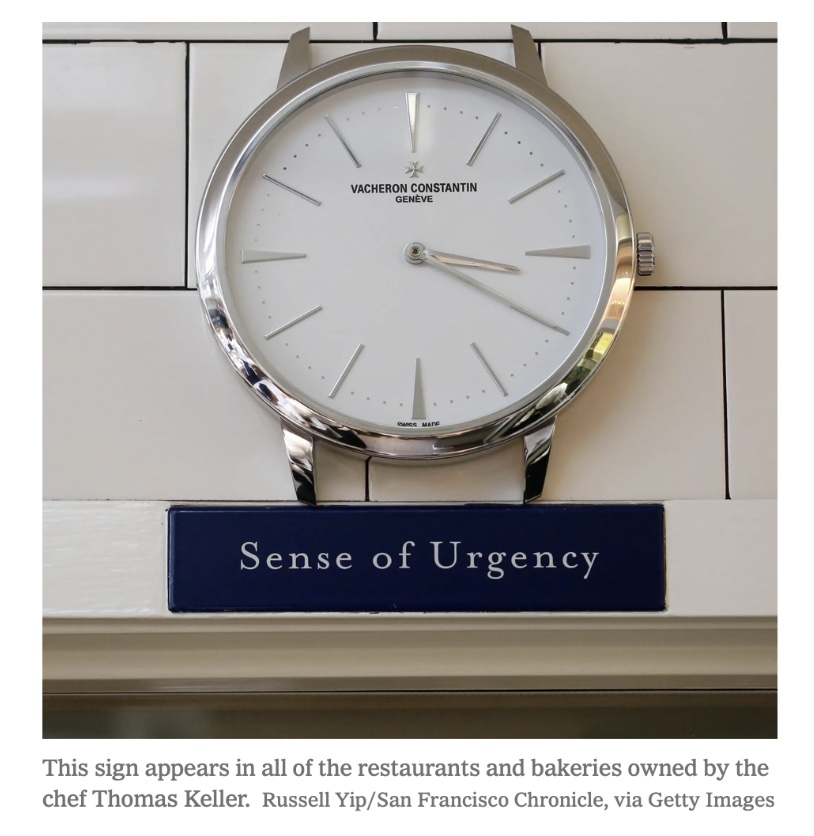
Vacheron Constantin is an excellent choice for almost all occasions, but if I were trying to convey a real sense of urgency, I might choose a watch with a seconds hand.
Elsewhere ...
You can buy my most recent book, Big White Ghetto, here.
You can buy my other books here.
You can see my New York Post columns here.
Please subscribe to The Dispatch if you haven’t.
You can check out “How the World Works,” a series of interviews on work I’m doing for the Competitive Enterprise Institute, here.
In Conclusion
The Islamic State has claimed credit for a knife attack at a concert in Solingen, Germany, that killed three people and wounded eight others. A similar stabbing attack was carried out in Mannheim a few months ago by an Afghan immigrant. We have been fighting the “war on terror” for almost the entire 21st century, and the need to fight it shows no sign of abating. The official journal of al-Qaeda—and that is a real thing; it is called Inspire—has called for similar attacks on high-profile Americans because such assaults do not require the logistical or technical capability of a 9/11 but can have, in the estimate of Inspire, as much of an effect. Without meaning any slight to those who have been fighting ferociously in the shadows all these years, one of the things that apparently protected Americans after 9/11 was an ideological quirk within al-Qaeda holding that spectaculars such as 9/11 should be followed up only by grander and bloodier attacks. The killer in Germany apparently cited the situation of the Palestinians as justification for stabbing those music fans to death. The idiot children at Columbia and elsewhere have been calling for an “intifada.” They may get one.
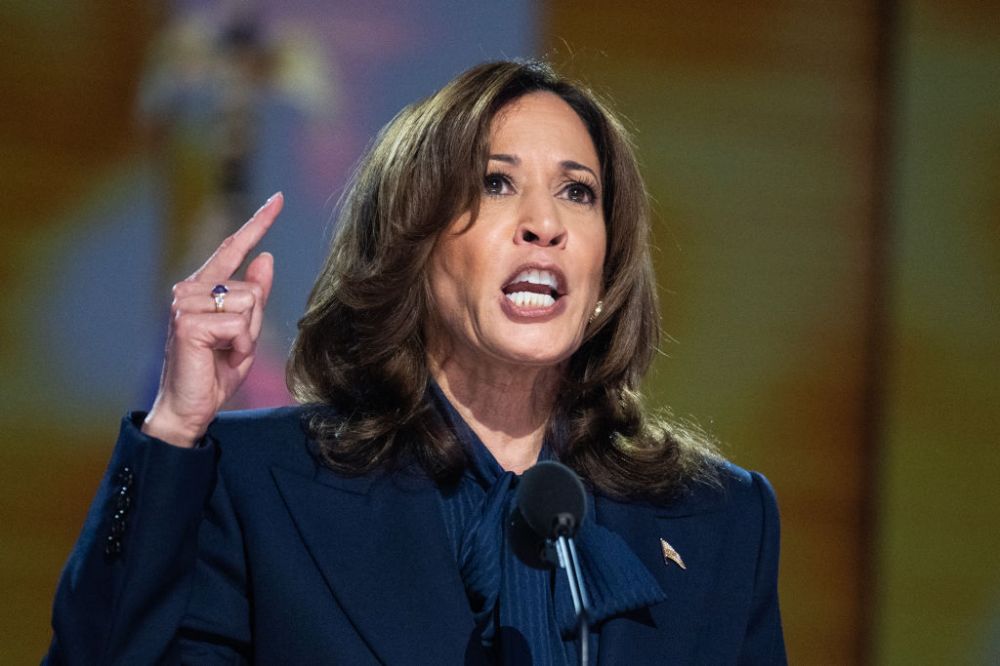

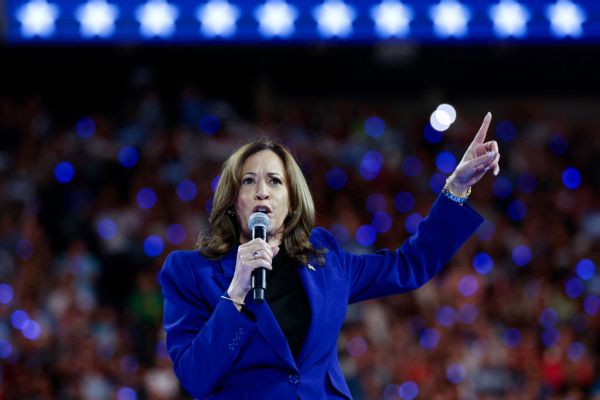

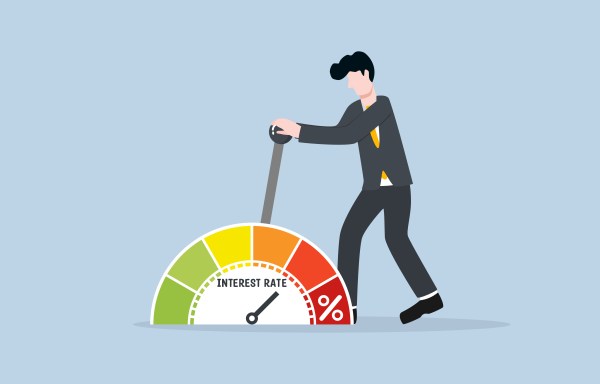

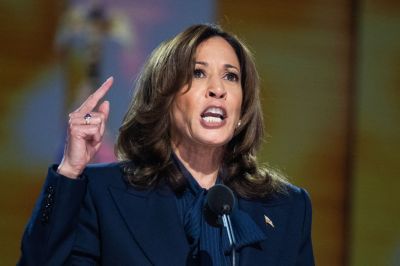
Please note that we at The Dispatch hold ourselves, our work, and our commenters to a higher standard than other places on the internet. We welcome comments that foster genuine debate or discussion—including comments critical of us or our work—but responses that include ad hominem attacks on fellow Dispatch members or are intended to stoke fear and anger may be moderated.
With your membership, you only have the ability to comment on The Morning Dispatch articles. Consider upgrading to join the conversation everywhere.